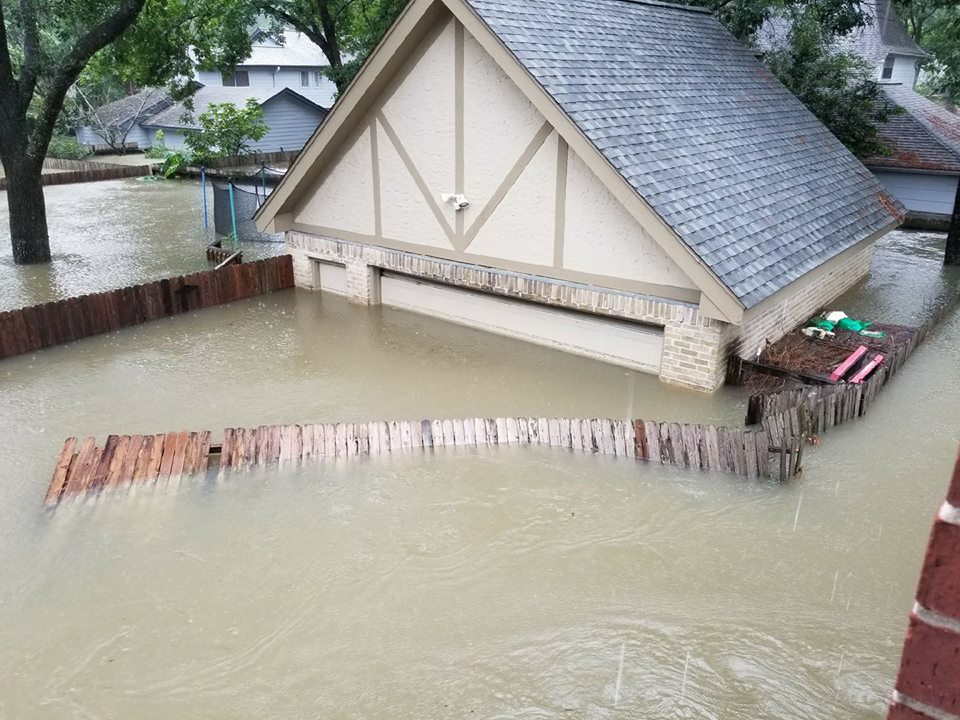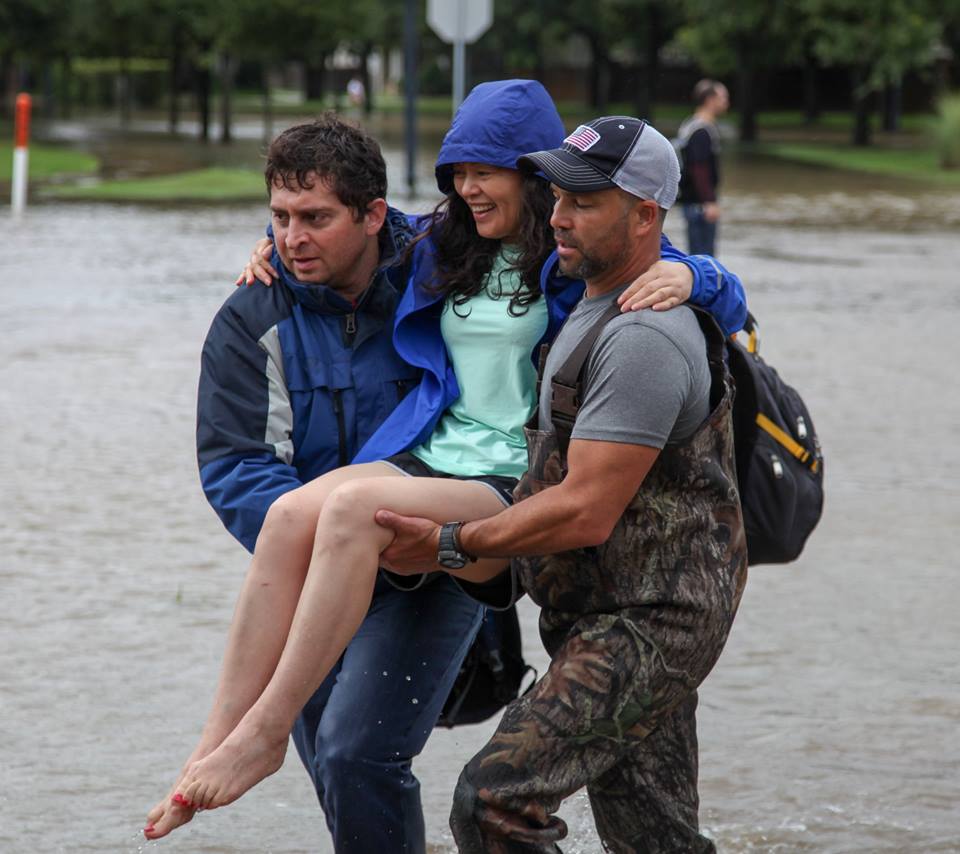Guest Post by Brandon Smee
For years, Sunday was always the day of the week I dreaded most. For most people, church is a place to step outside of the stress of the work week, to encounter the goodness and peace of God, and to receive encouragement for the challenges ahead. But without fail, I would walk out of almost every service on edge, my thoughts spiraling down at an alarming rate.
The same thing was happening during meetings throughout the week, after small groups and worship services. I seemed to struggle to connect with God in worship like my friends, and I became hyper-sensitive to every sermon point, agonizing over whether I was in or out of God’s moral will. I was constantly anxious that I wasn’t satisfying all of God’s expectations for me, and church would remind me of these fears and keep them churning in my mind for hours and days.
I still loved God, and I loved my church and my community there, but as my anxiety increased, my relationship with God and with my church suffered. It wasn’t until I began seeking out help for mental health that I began to understand what was going on and that I was not alone.
Every year in America, millions of Christians experience mental health struggles, and while for many of them faith can be a source of comfort, it can also become a source of distress. For people of faith, mental health struggles often take on spiritual overtones. Many people shame themselves for not overcoming their anxieties with faith, or ruminate over a thousand miniscule spiritual shortcomings. Others may beat themselves up for not experiencing joy or spend hours just trying to feel close to God.
We are tempted to examine our spiritual lives with painstaking scrupulosity, looking for the defect that must be the root of our struggle. “If only I had a better relationship with God,” we tell ourselves, “then I wouldn’t feel this way.”
The reality is that people can experience mental health challenges regardless of the quality of their relationship with God. Great figures like Teresa of Avila, Martin Luther, and Charles Spurgeon, to name a few, suffered severely with depression, anxiety, and other mental health issues, yet God used their spiritual walks to impact millions of people.
Depression, anxiety, bipolar and the like are not signs of weak faith but rather opportunities for our faith to shine through. As James 1:2-3 says, “Consider it pure joy, my brothers and sisters, whenever you face trials of many kinds, because you know that the testing of your faith produces perseverance.” James isn’t saying to stuff our emotions and claim we’re joyful; he’s challenging us to recognize that our struggles test our faith and reveal it to be genuine. Instead of seeing our mental health issues as a deficit of faith, we can realize that God is at work in us, sustaining us and giving purpose to our suffering.
While church can be difficult for many with mental health challenges, there are ways we can find peace, hope, and restoration in our communities in the midst of the struggle. Here are just five tips I’ve learned through my journey.
1. Savor what allows you to connect with God.
When mental health issues develop, it can seem like God is behind a wall. None of the things that used to allow us to relate with him seem to work. It can be hard to focus on Scripture, or wake up early for devotions. Maybe you can’t feel the same emotions in worship, or you find yourself overwhelmed by all the people, lights, and music at a service. Thankfully, God graciously accepts many kinds of worship. There are dozens of spiritual disciplines that Christians have used across the centuries to connect to God.
As you have the opportunity, try different ways of reading Scripture, praying, worshipping, and reflecting. As you find practices that make sense to you, savor them and work them regularly into your life. When Israel was journeying across the wilderness, God appeared in a pillar of cloud by day and fire by night; we find that God shows up in different ways under different circumstances, even as God leads us to the same destination.
2. Know your limits.
All humans, not just those with mental health diagnoses, have limits! During the middle of a hard episode, aspects of church can become difficult to get through. If a loud worship service is overstimulating, give yourself permission to walk out (maybe invite a friend to come with you). Don’t force yourself to sit through a service or small group if you’re having a hard time. God desires mercy over sacrifice.
Instead, give yourself space to breath and ground yourself, and go back in when you are ready. Once you realize you are not trapped in the pews, the tension and anxiety around church can decrease, and worship services become less about performance and more about meeting God with the people of God.
3. Embrace community.
A great temptation for those of us facing mental health challenges is isolation. Others can have difficulty understanding what you are going through, and a mental health episode can make you feel like you have no energy left for connecting with people. But God has designed us to function best both in faith and in life when we are walking with other people. When we embrace community, we can find people to pray, seek God, and have fun with.
Moreover, being with other people can help take our focus from our own struggles to those of others, allowing us to have a positive impact in the lives of those around us. Whether it’s a small group, a Bible study, or a volunteer group, it’s a great idea to find people to walk with.
4. Set up healthy boundaries.
At the other extreme from isolation, mental health struggles can lead us to rely too heavily on others, whether we find comfort in them solving our problems or us solving theirs. In Galatians 6, Paul balances his command to “Bear one another's’ burdens” with the admonition that “each one should carry their own load.”
We support each other, but at the end of the day, we should be carrying our own load, no more and no less. When we find ourselves beginning to rely on a relationship or person at church to take care of us emotionally, keep tabs on us spiritually, or make decisions for us, it’s time to take responsibility for these things ourselves.
While it can sound scary to limit the amount we rely on a friend, it is actually empowering and freeing to carry what God has given us to carry, as it allows us to trust in an unfailing God to support us rather than another person. In addition, a mental health diagnosis in no way diminishes our worth or value as Christians, and as such we should not be okay with people taking advantage of our struggle, abusing or manipulating us, but we should assert boundaries as the respect that comes with bearing God’s image.
5. Maintain a perspective of grace.
Grace is unmerited favor, and God extends it to us abundantly. In our mental health journey, we will find that at many turns our spiritual lives are difficult, and as humans we often mess up and sin. In the process, there is grace for when we walk imperfectly, and grace to strengthen us as we continue toward the future.
Moreover, there is grace to extend to other people who have difficulty understanding or supporting us in the struggle. For people who don’t experience a mental health challenge, what you’re going through may be totally unfamiliar, and they may say or do things in response that hurt more than help. There is grace for them and for you as you seek healing and restoration. As we hold onto that grace, we will find peace, hope, and love accessible to us along the way.
Wrapping It Up
Jesus invites all people to come to the Father through him, including those who experience mental health challenges. He healed whoever he came in contact with, and he has the power to restore the broken thought patterns, neural connections, and trauma that underlie these issues. As long as we remain in the process of healing, may church be a place where we find the love of God among the people of God, and receive empowerment and encouragement to move toward recovery.
















